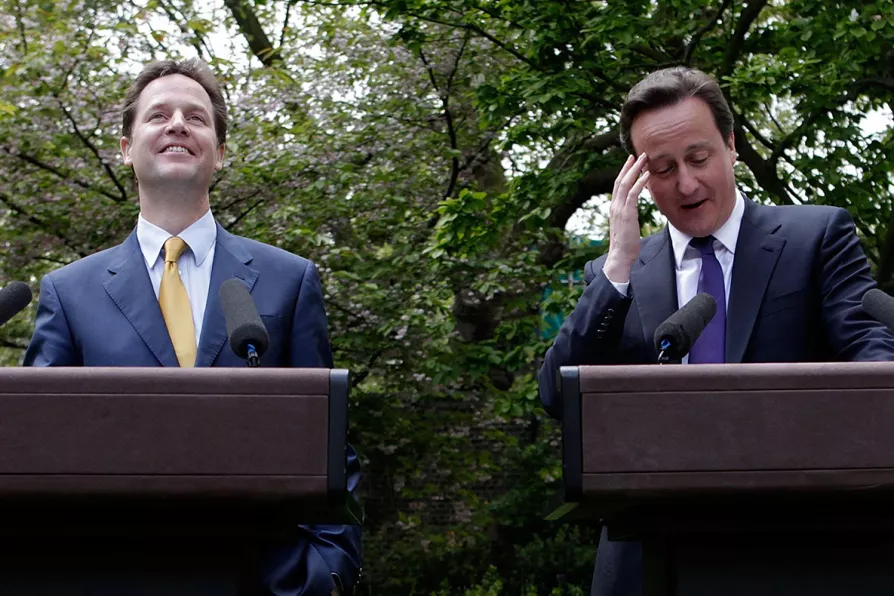This weekend, the NEU holds a special conference to debate changing its approach to organising teaching assistants, which a 2017 TUC agreement forbids. General secretary DANIEL KEBEDE outlines the choices before delegates

 Then Prime Minister David Cameron (right) and then Deputy Prime Minister Nick Clegg hold their first joint press conference in the Downing Street garden in central London, May 2010
Then Prime Minister David Cameron (right) and then Deputy Prime Minister Nick Clegg hold their first joint press conference in the Downing Street garden in central London, May 2010
IT’S time that we had an honest debate about the underlying assumptions which have been used for so long to drive the British economy into the doldrums.
Of course, it is true that the Conservatives have proved incompetent in economic management. But this poor fiscal administration has only compounded the mistakes which are baked into the whole neoliberal era which was kicked off in Britain by Margaret Thatcher.
It follows, therefore, that getting a more competent government will not be enough, although it is absolutely essential that the country kicks the Tories out of office.

We cannot refuse to abolish the unjustifiable two-child benefit cap that pushes children into poverty while finding billions of pounds for defence spending — the membership and the public expect better from Labour, writes JON TRICKETT MP

Under current policy, welfare cuts are just a small downpayment on future austerity, argues MICHAEL BURKE












